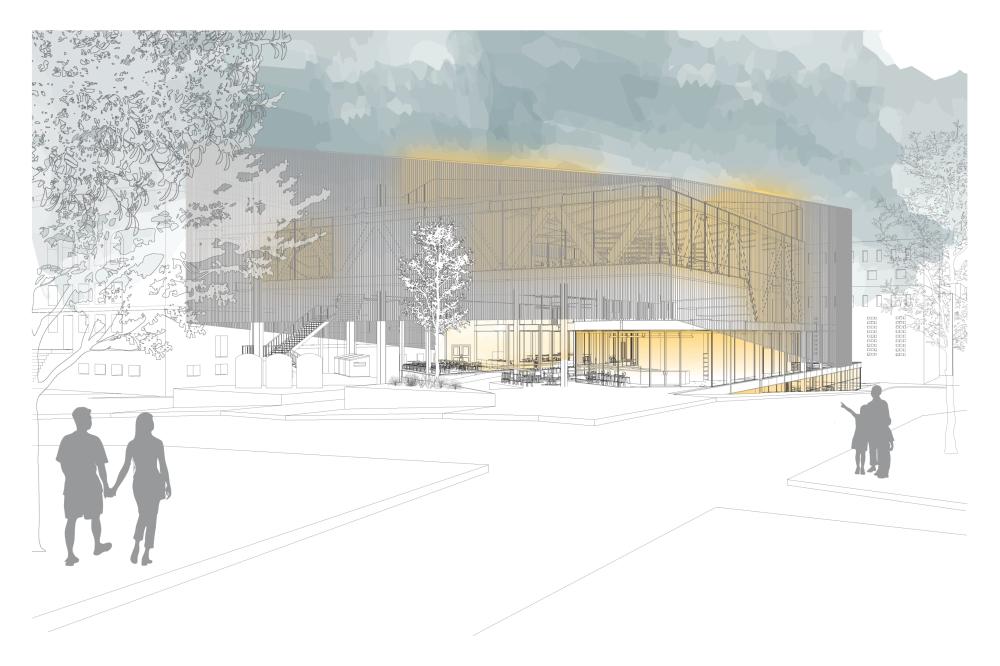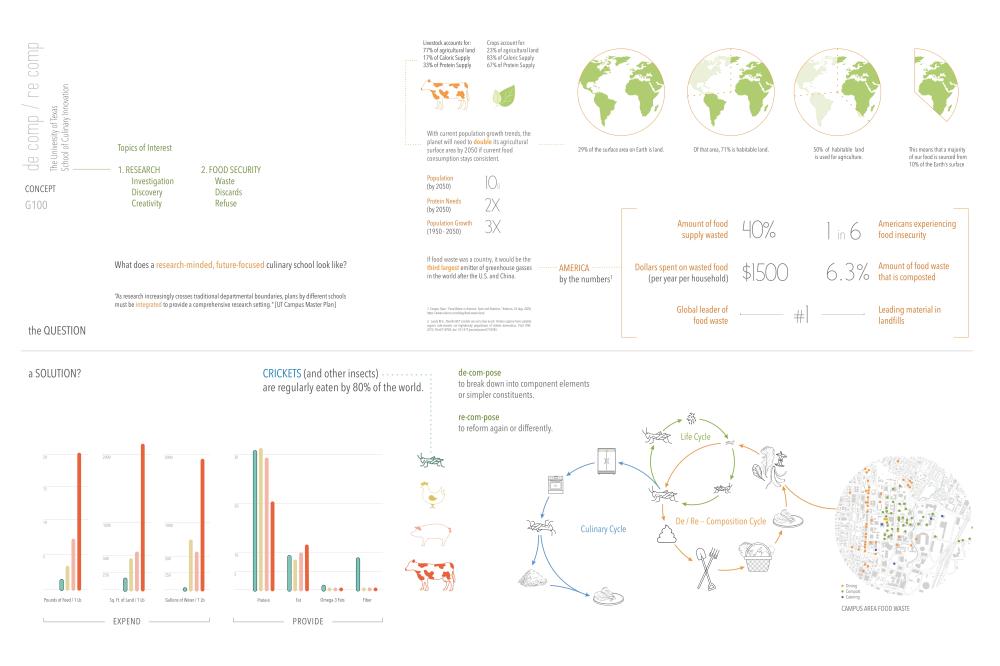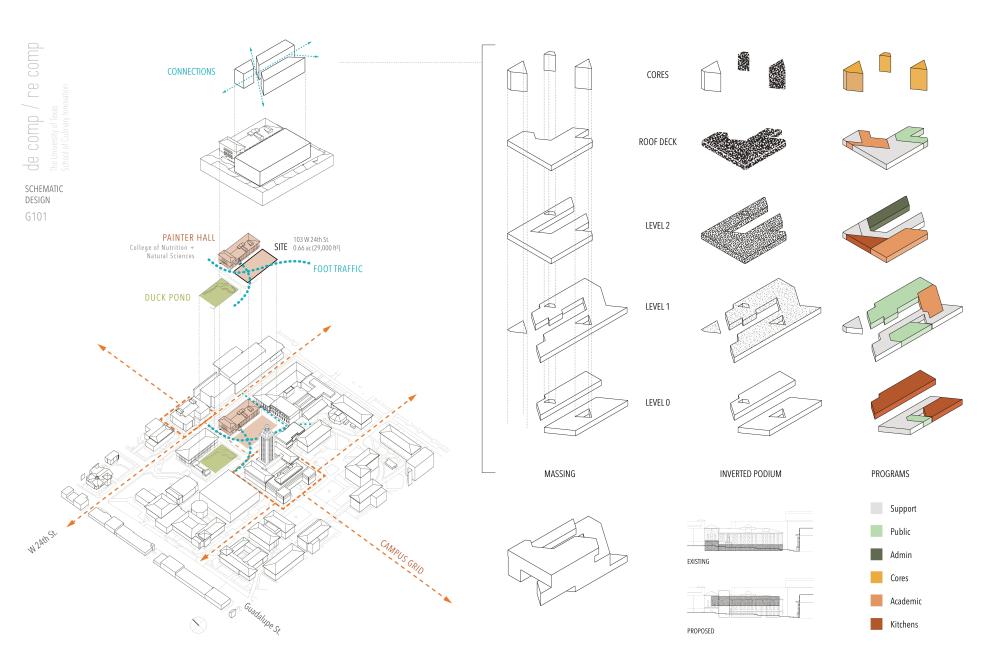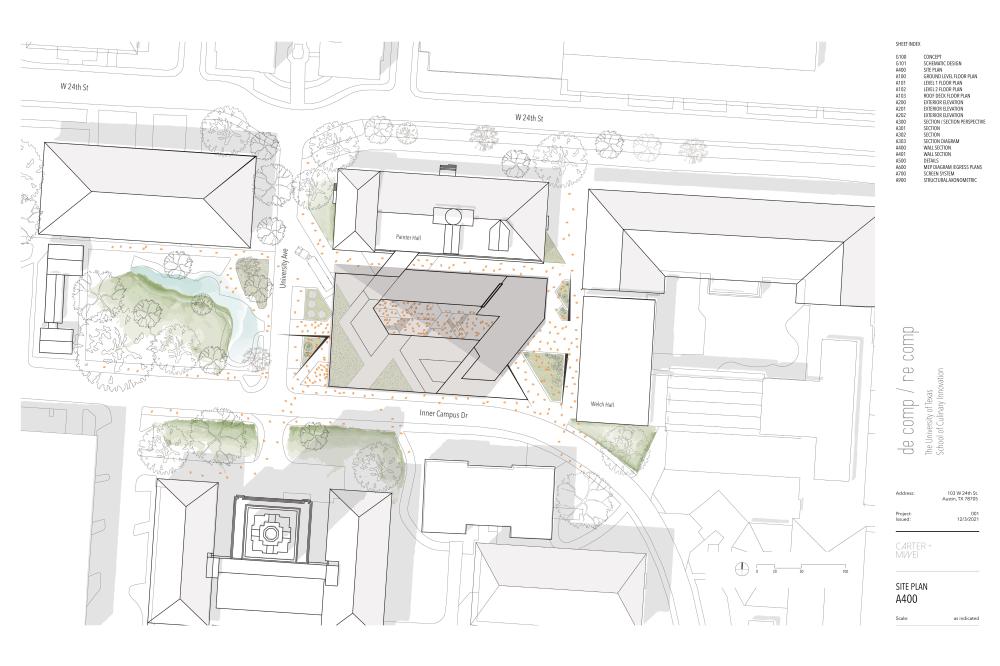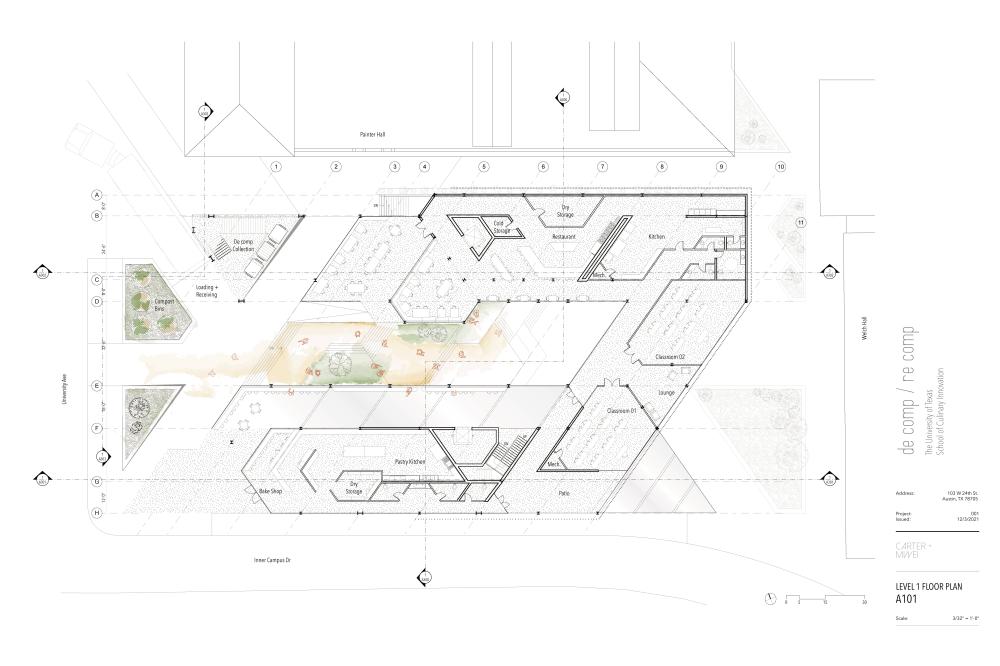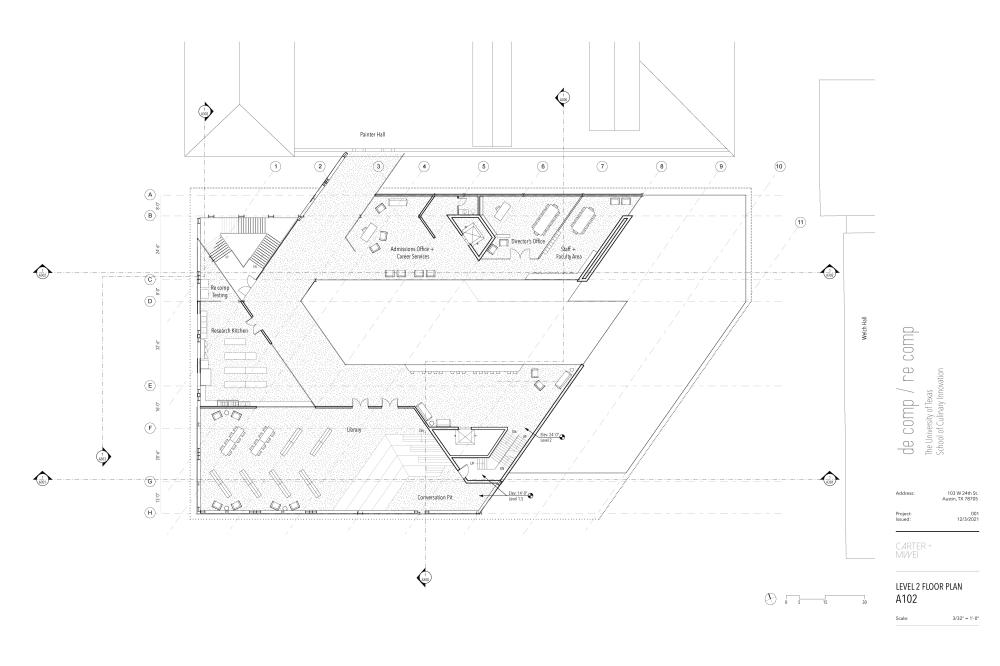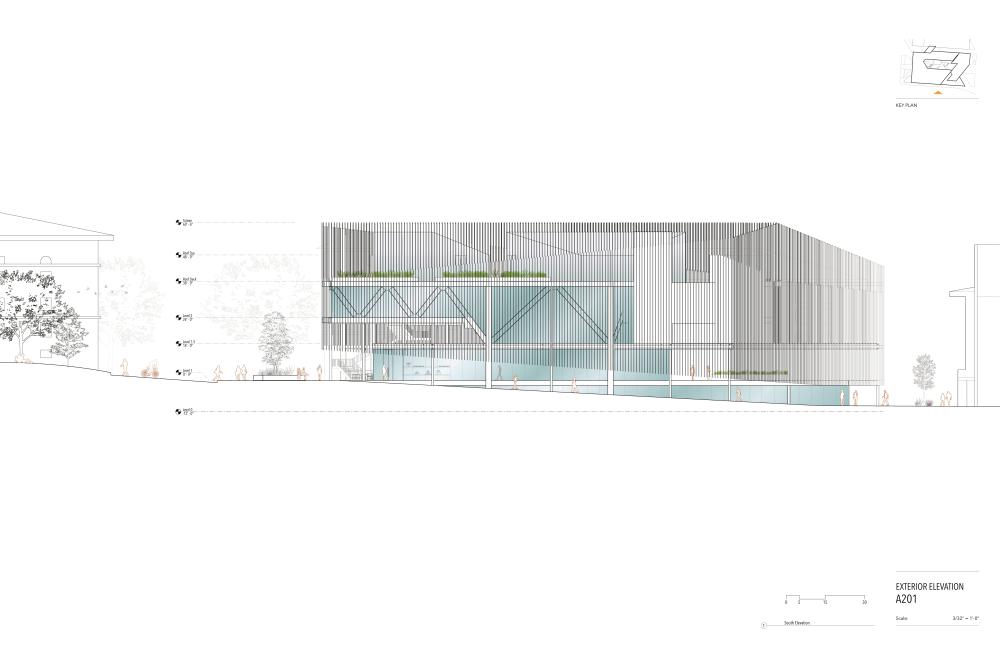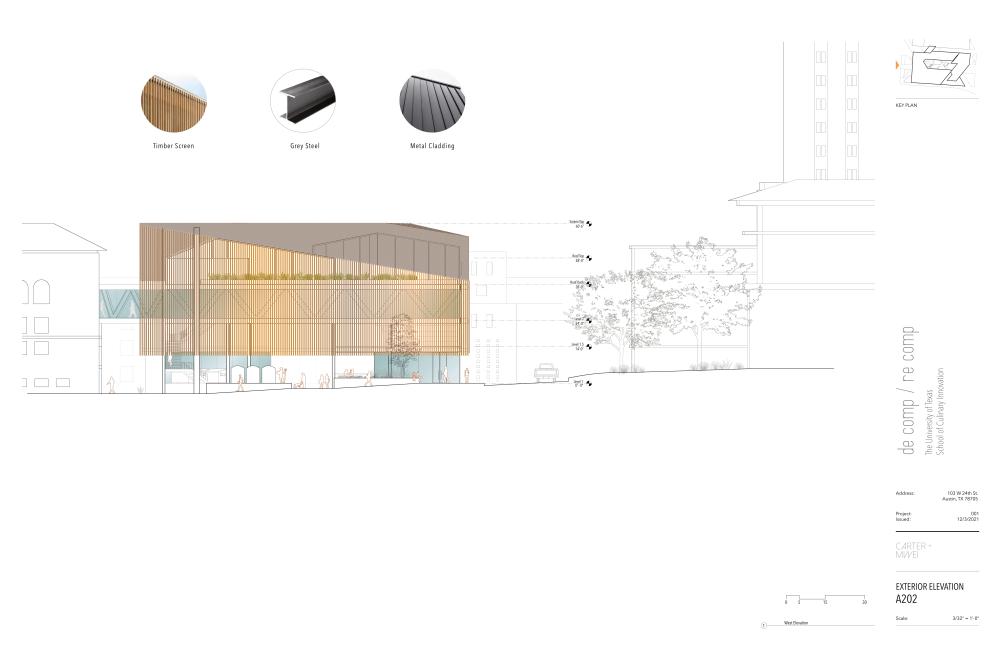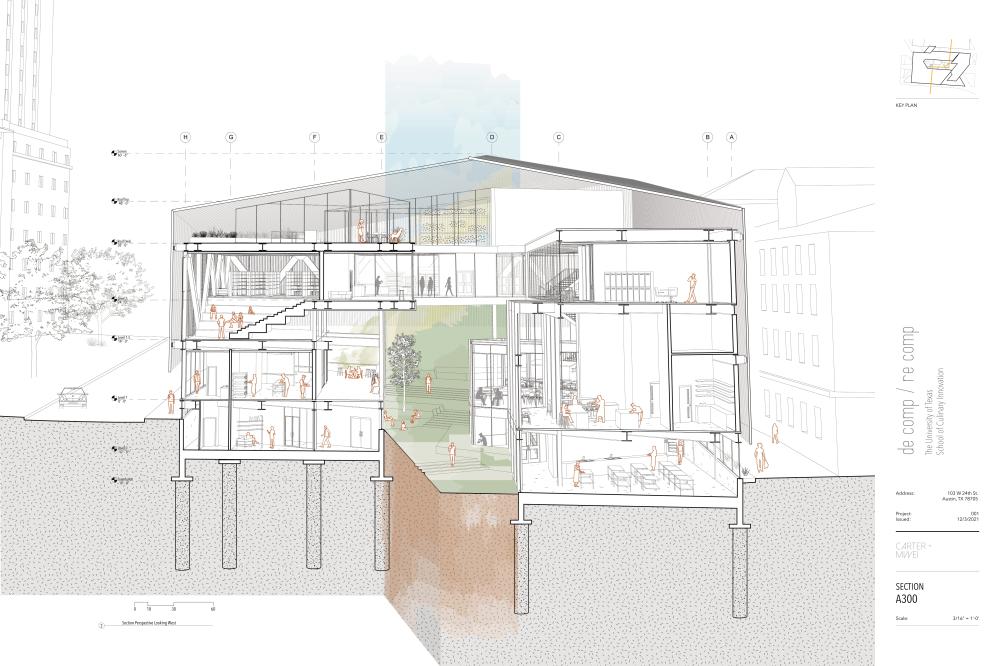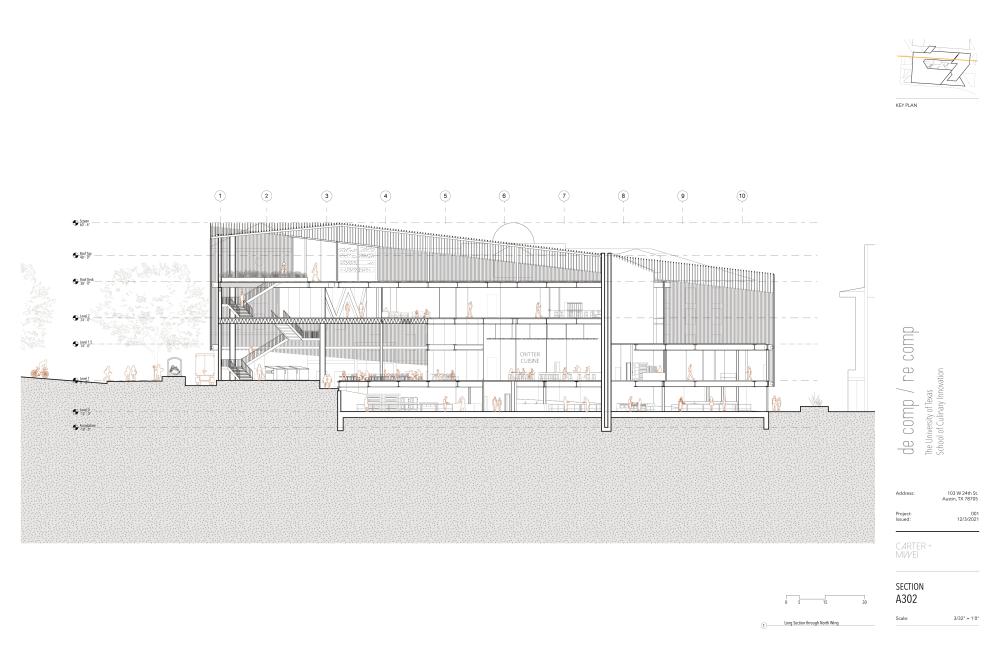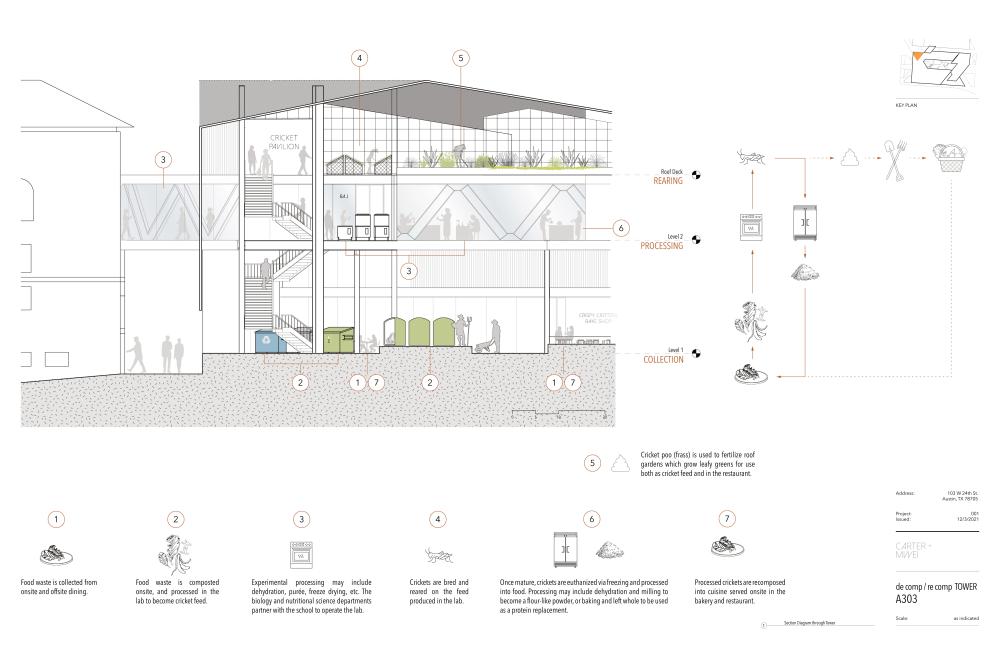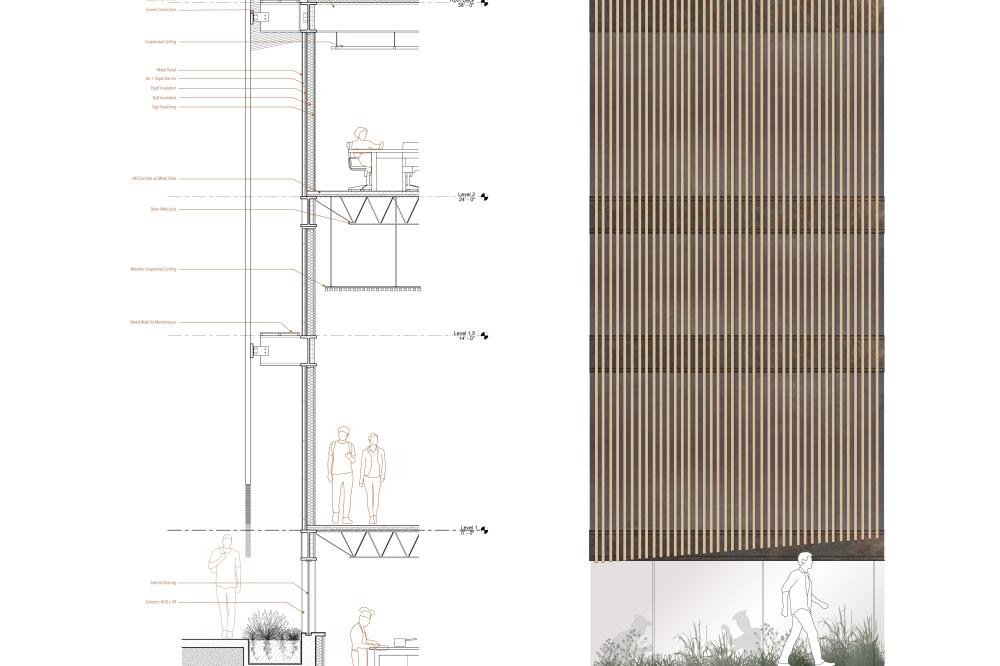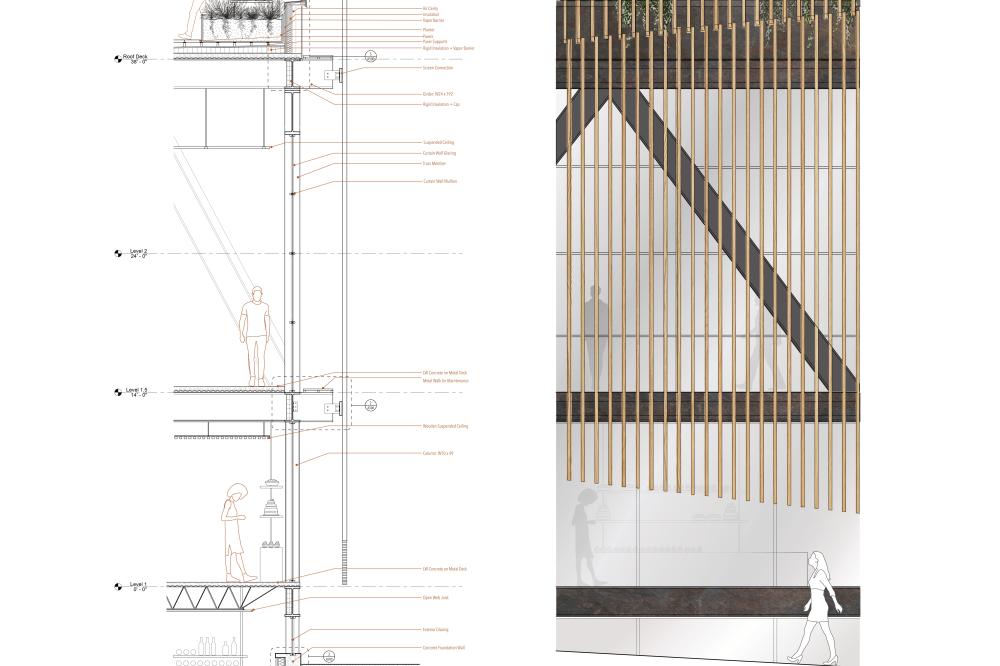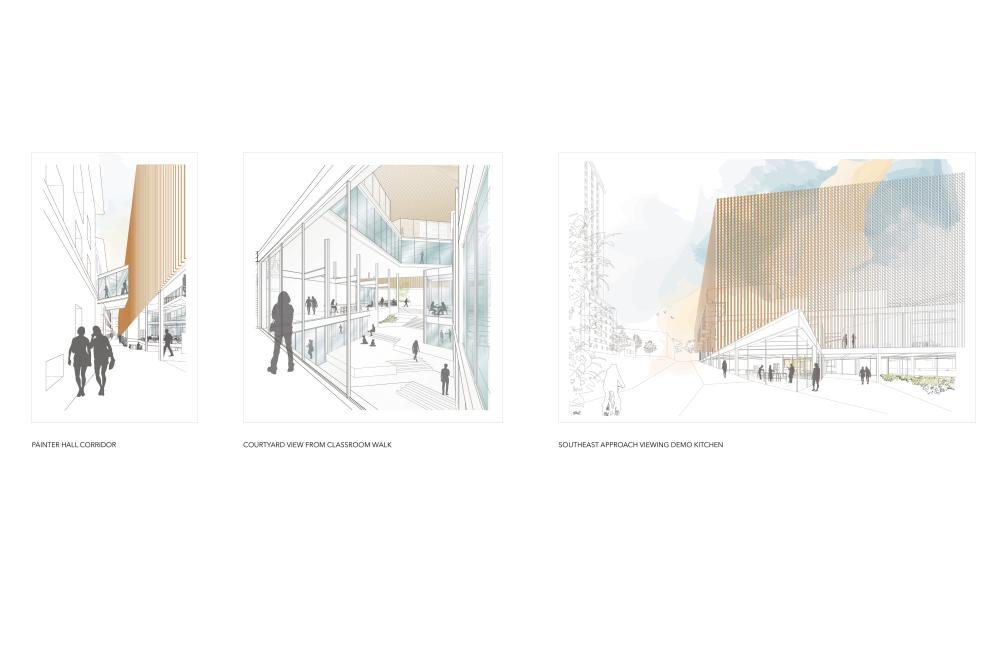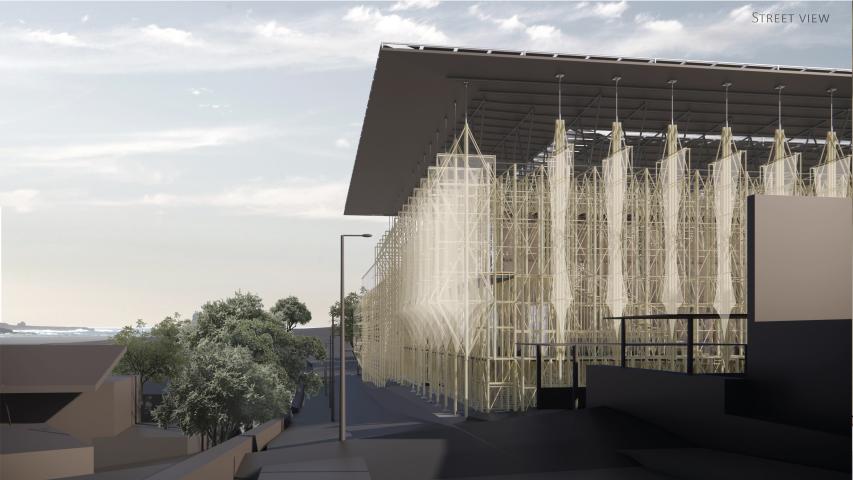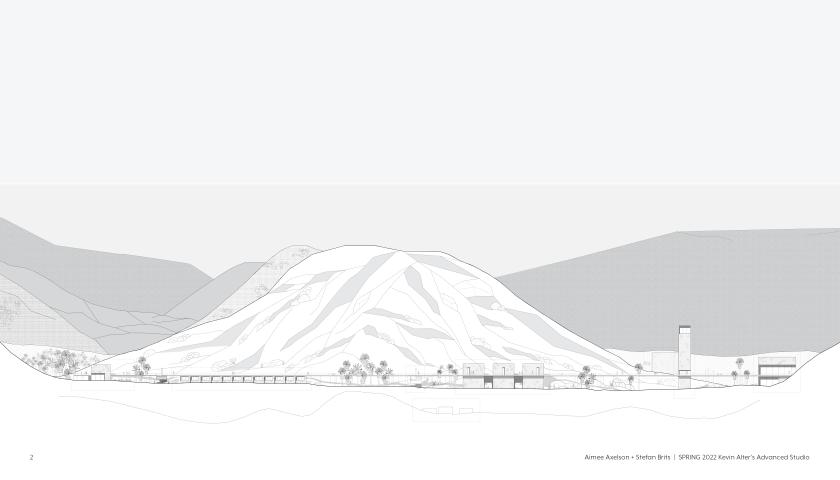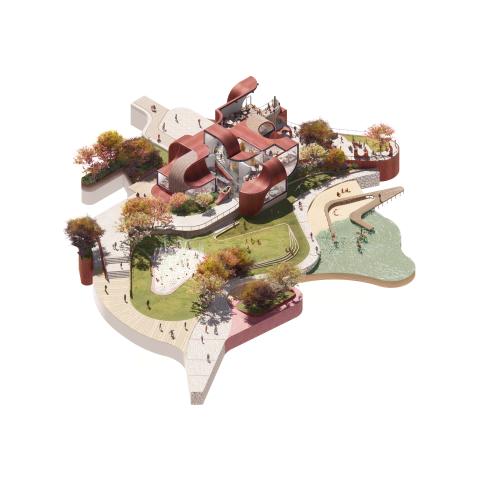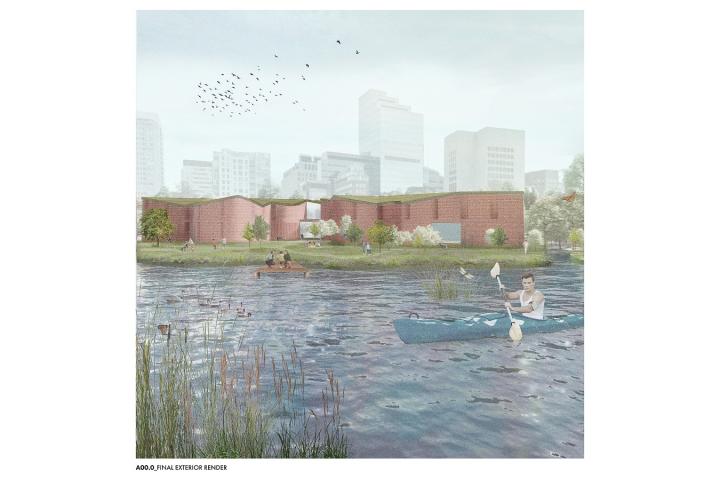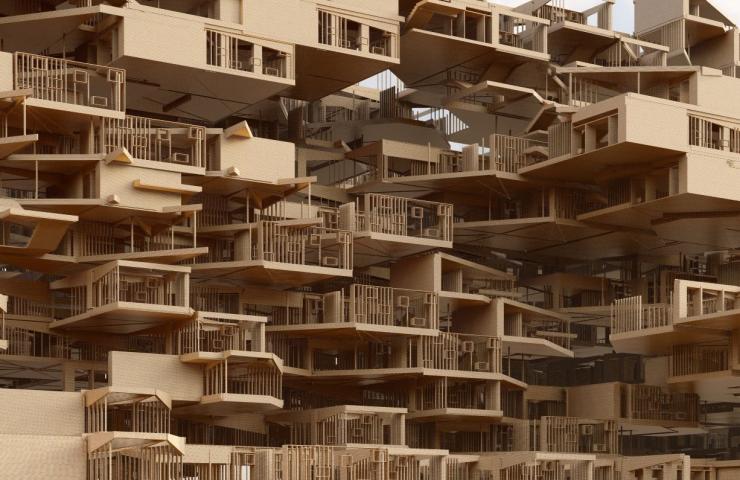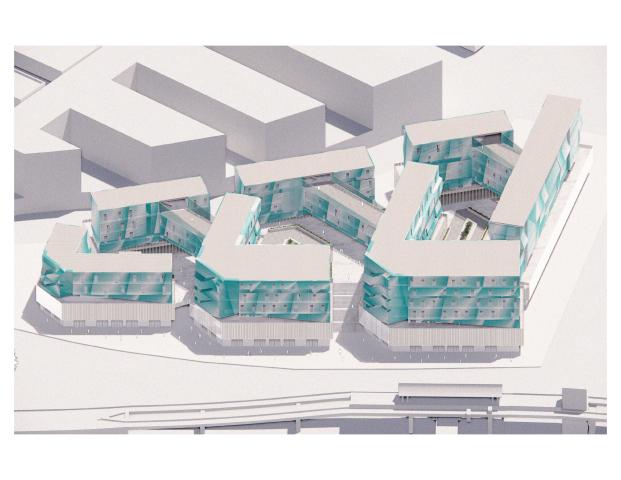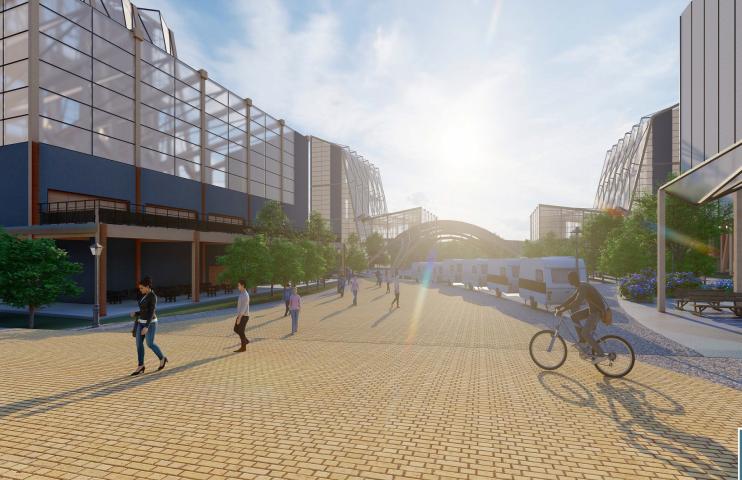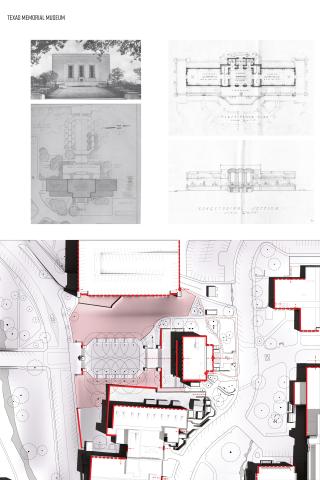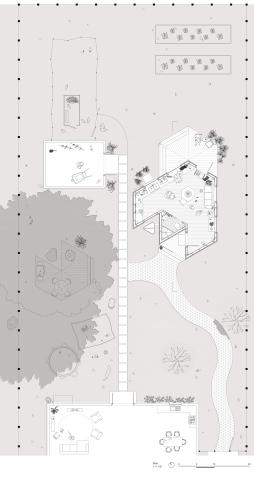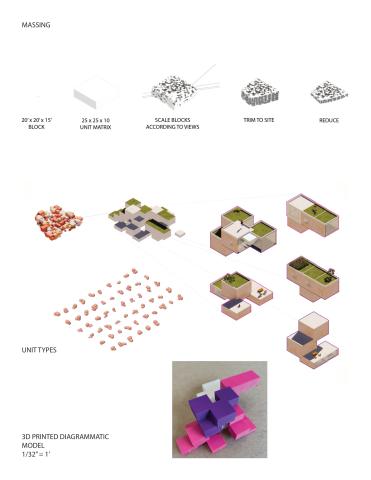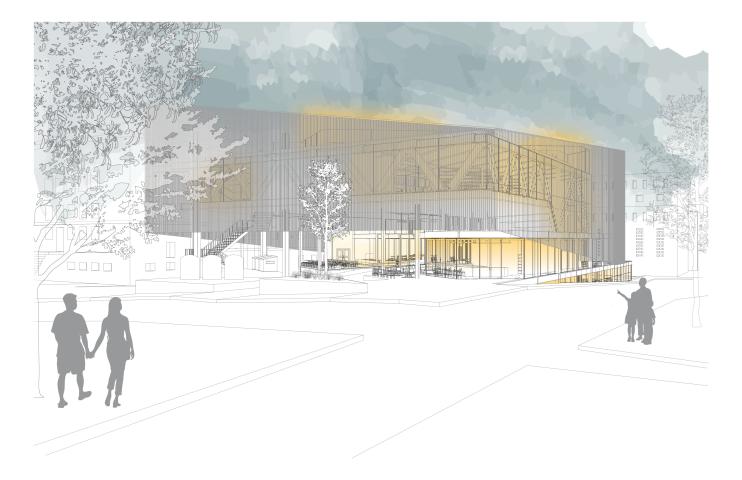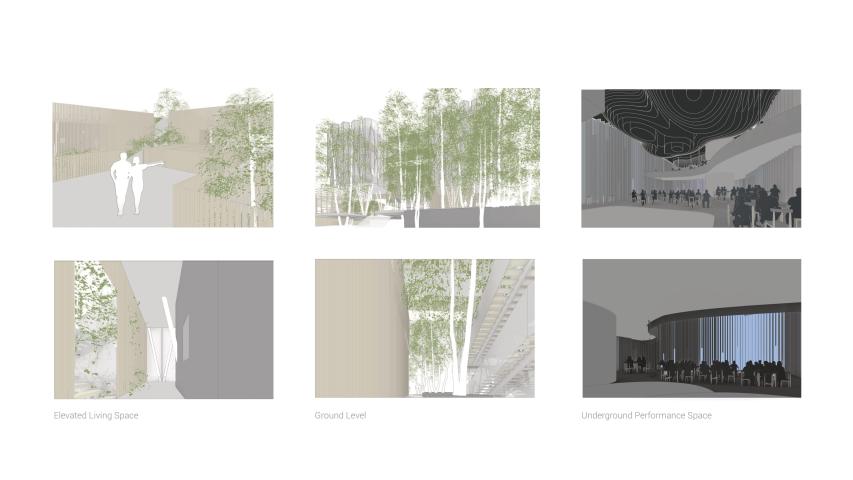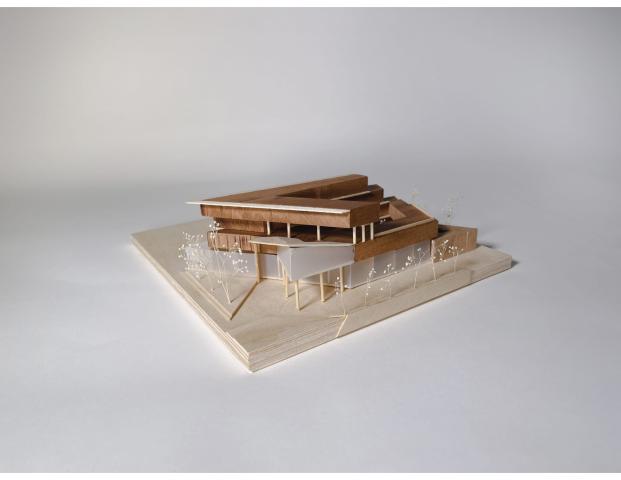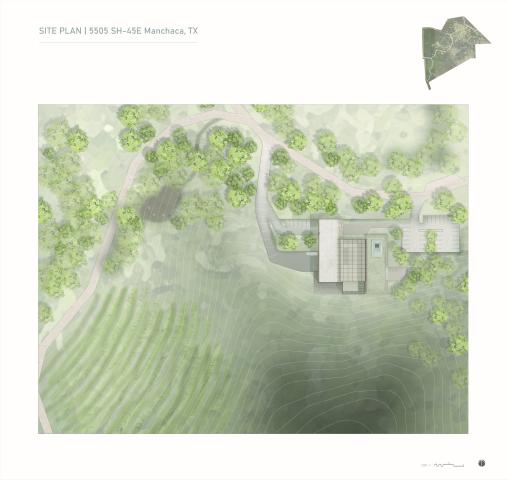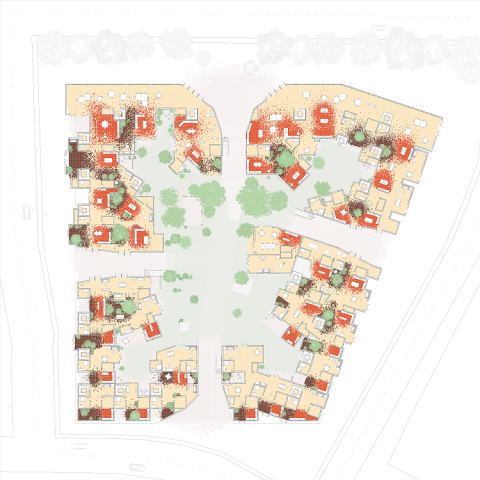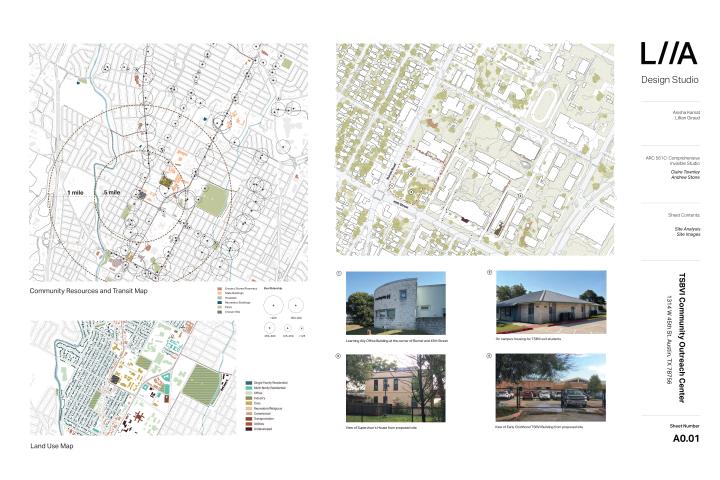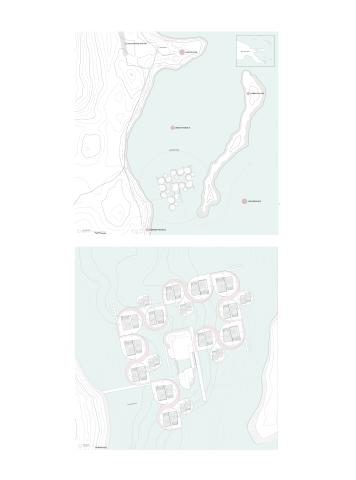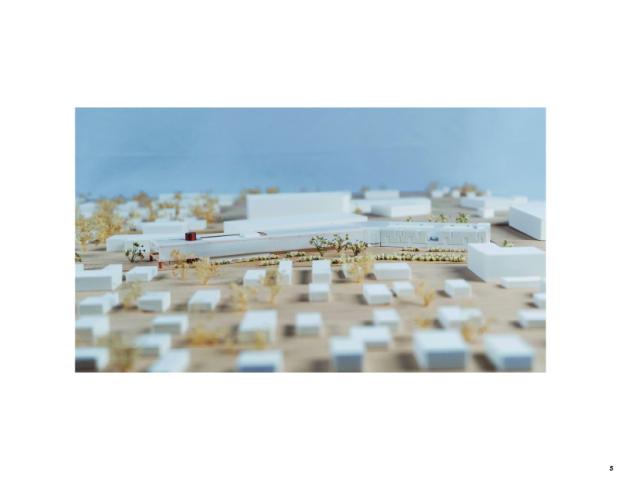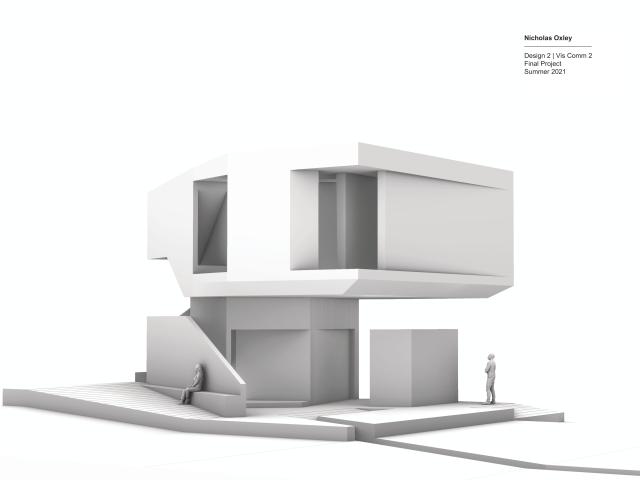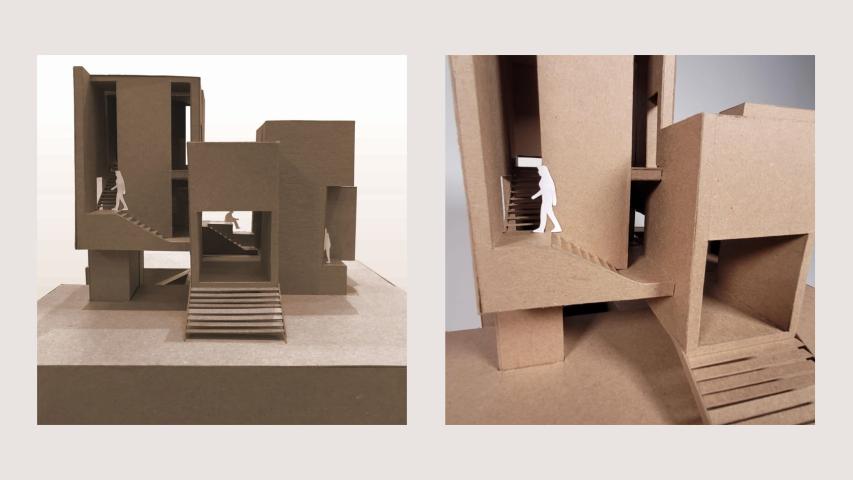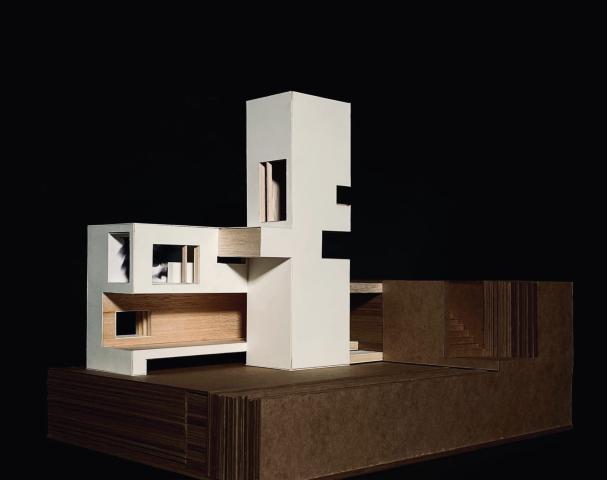What does a research-minded, future-focused culinary school look like? Specifically, how can culinary education begin to address the issues of land scarcity, population growth, and food waste?
Micro-livestock has been proposed as a sustainable way to meet our increasing protein needs and intercept the food-waste stream via a protein recapture –the use of insect metabolism to convert food waste into edible protein. Perhaps by redefining and recomposing food-scrap from a “waste” to a “use,” and bugs from a “pest” to a “protein,” we can create a culinary institute that uses systematic and creative discovery to decompose and recompose American cuisine in pursuit of longevity and delight.
Our site sits on the corner of University Ave and Inner Campus Drive, adjacent to the UT Tower and facing the turtle pond. Designing on a campus with a preexisting master plan, we aimed to challenge some of the precedents set across campus while honoring others. The building inverts the typical solid podium seen at the base of most UT buildings and encourages movement through the building rather than around the building.
The facility consists of floor plates based on a diagonal structural grid system that slip by each other, none having the same footprint as the others. A timber screen wraps these spaces, containing them while displaying part of the life cycle of the building since, after about 30 years, the screen will undergo a molting process, having to be shed and replaced. This research facility promotes curiosity by exposing its animated programs of cookery, connecting to other university departments, and inviting passersby to meander, gaze, smell, and taste.
2021-2022 Design Excellence Award Winner
Victoria Carter and Nicole Mwei
Architecture Integrative Design
Instructor: Matt Fajkus

